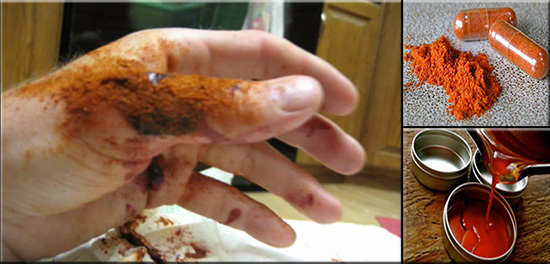If you yourself try to stay away from drugs and chemicals, you probably want the same for your pet. Although not spread much, there are natural solutions to treat animals. Before applying, it is advisable to consult a veterinarian. Like people, every pet is different and may react differently to treatments.
1. Use chamomile to irritated skin
Chamomile has disinfectant and anti-inflammatory properties. Kills fungus and bacteria that can cause minor skin irritation your pet.
While preparing a concentrated chamomile tea. Pour into a spray bottle and let cool completely in the refrigerator. Spray it on the areas where your pet has irritated skin. You will see that feels immediate relief.
2. Oatmeal to soothe the itch
If your pet is very itchy and likes to take baths, this option will be perfect. It incorporates ground oats, as it is used in baby food in a container filled with warm water. Ideally it is large enough to fit your pet. This preparation relieve discomfort caused by allergies and infections.
If your dog is too large to submerge in a bowl, prepare a paste by mixing water and oats. Apply to the affected areas, leave on for 10 minutes and rinse with water.
3. essential oils to relieve itching of a cat
The causes of itching can be varied: fleas, dander or allergies. In any case, you can dilute a few drops of essential oil of rosemary or mint and apply the most affected areas. If your cat does not respond well to this treatment, apply compresses of aloe vera or an infusion prepared with catnip.
4. Coconut oil for dry skin
If your pet has dry skin, masajéalo with some coconut oil. Note that the fur will be quite greasy. That is why it is better to apply for an hour or two before bathing.
5. Blueberries for cats with urinary problems
Cats, especially males, are likely to have urinary problems. If this happens, add a bit of natural cranberry juice (unsweetened) in your jar of water. Consult a veterinarian to determine the appropriate dosage.
6. Pumpkin for animals prone to constipation or diarrhea
Pumpkin puree can do wonders in animals with constipation or diarrhea. But not always work. You can try to solve the problem with the food, because it will not do you any harm to your pet. If symptoms are mild and persist for a day or two, consult a veterinarian.
7. Try fleas citrus topically
Citric acid is an excellent flea repellent. You can rub a little lemon juice, orange or lime on your pet's coat.
Another option is to prepare an aerosol. To do this, you must cut six lemons and boil a liter of water for five minutes. Leave lemons soak overnight for juice and oil mix well with water. The next day, pour the liquid into a spray bottle (do not reuse one that has contained chemicals). You can keep the preparation in the refrigerator for a week. To use, spray a little hair on your pet after bathe. You should apply it again when the lemon scent has dissipated. Be careful to keep the fluid away from the eyes of your pet.
This solution is better for dogs than for cats. These, like fleas, they do not like too much citric aroma.
8. Fighting fleas yeast
At Fleas also dislike yeast. If you include a little food for your pet, your blood will no longer be tasty for them.
Use a teaspoon nutritional yeast per day for cats and small dogs. For dogs over 23 kg incorporates one tablespoon daily. Some animals are intolerant to yeast and react with an allergic skin rash. Discontinue treatment immediately if this happens.
9. Make a flea collar for your dog
Geranium essential oil is excellent for repelling fleas. Apply a few drops on your dog's collar to create a natural flea collar. It is not recommended to use this option for cats.
10. cleans your pet
Water is the most efficient way to eliminate fleas remedy. That is why it is important for bathing your pet frequently. This applies more to dogs than cats.
To make a chemical-free soap grated three or four tablespoons Castile soap solid. Add four cups of hot water and stir until the soap is completely melted. When this happens, add a cup of white vinegar or apple cider vinegar. Pour all ingredients in a bottle. Shake well before using.
11. cleans your house
Not achieved only bathe your pet. You should also take care to thoroughly clean your home. Aspira the places that your cat or dog frequenting more often, including couches and chairs. You should also wash your well doghouse and disinfect the floors. Click here to learn how to prepare natural disinfectants

12. Try scratches with saline
Cats are very territorial. That is why often involved in fights. If it was scratched and the wound is minor, you can treat yourself. To do this, prepare a saline solution by mixing water and salt or buy one at the pharmacy. Clean the damaged area and cut her a little coat that surrounds the area. If the wound becomes inflamed or infected, take your pet to the vet.
13. Use of metal plates or glass
Plastic containers harbor bacteria that can be harmful to your pet. Choose dishes glass or metal and either wash them at least once a week.





















































